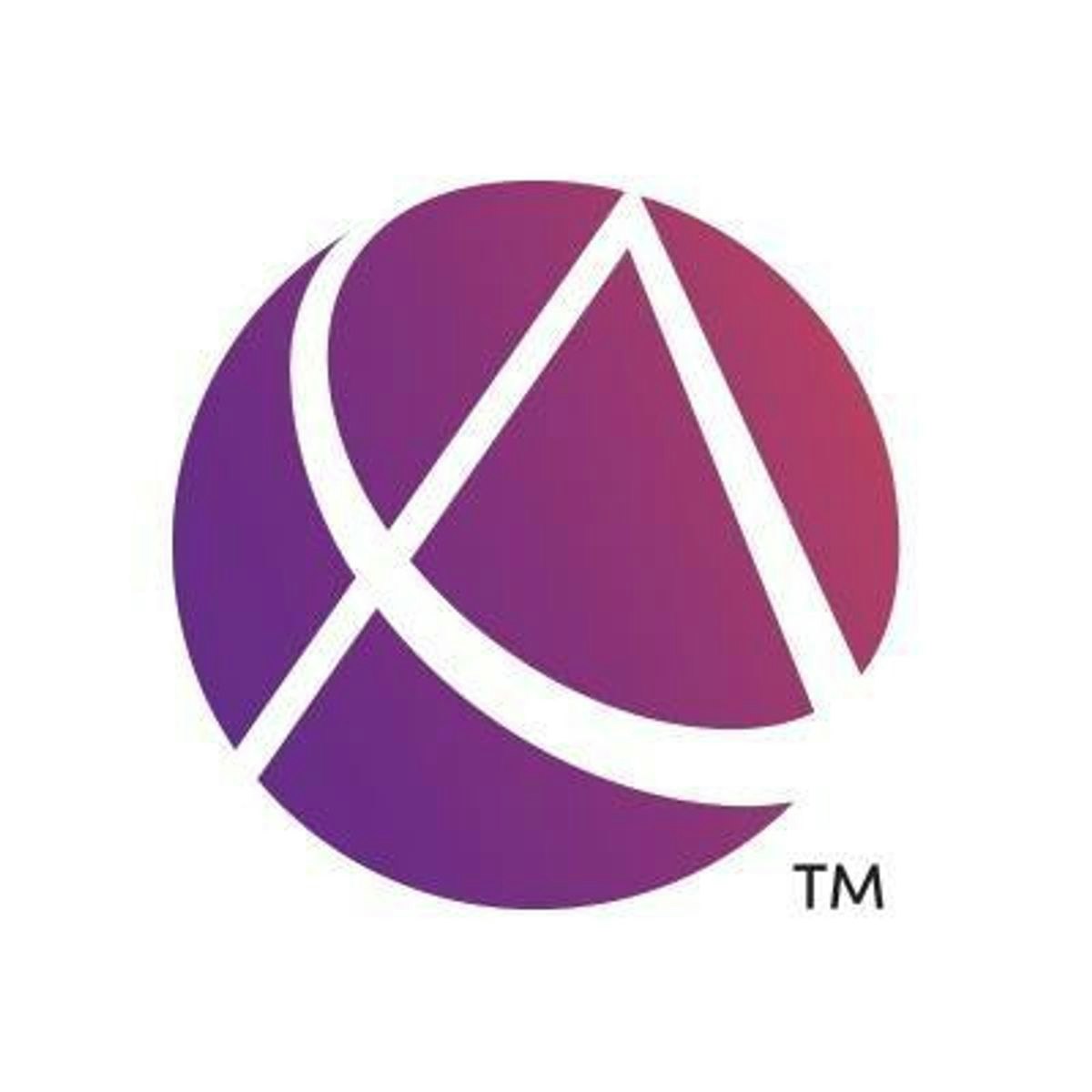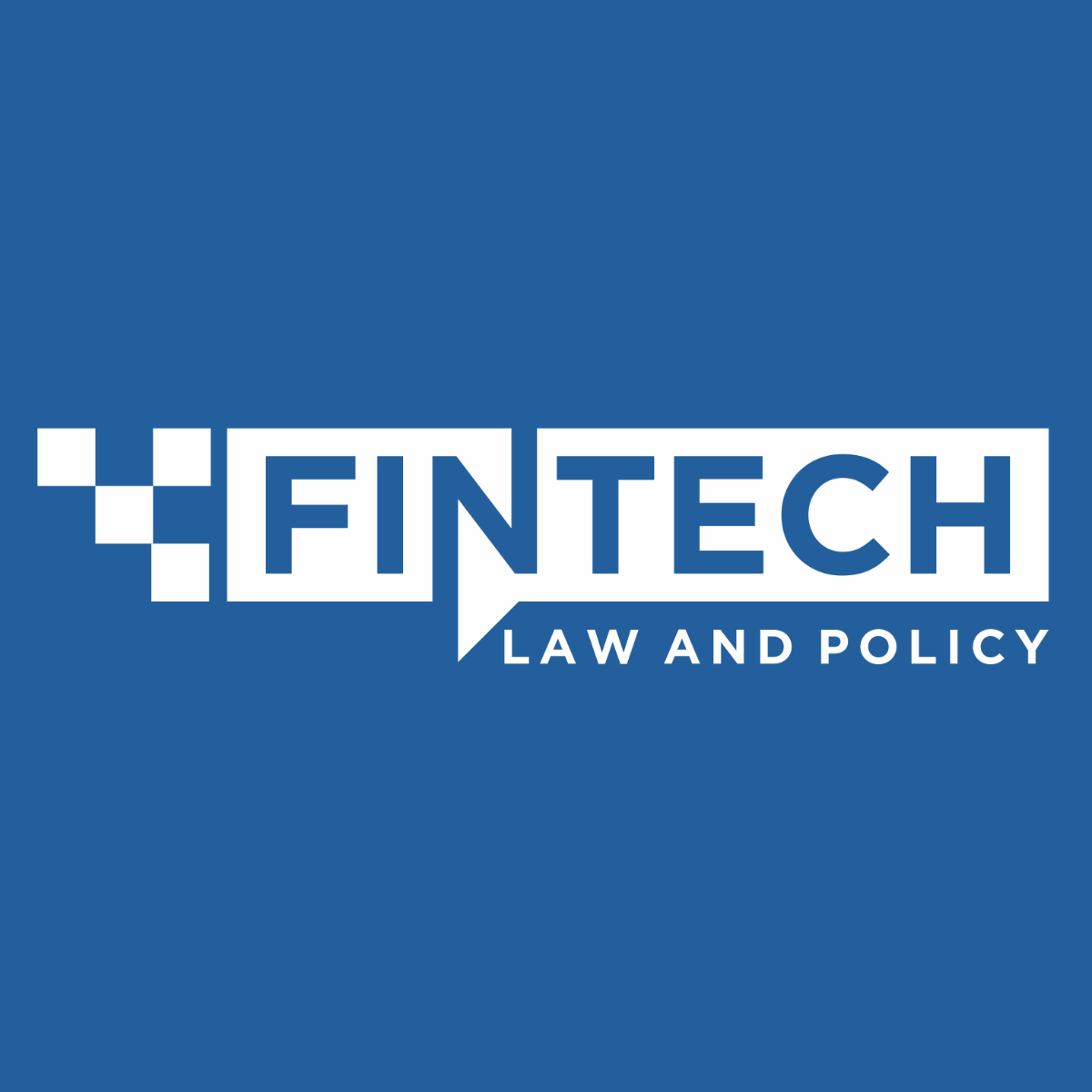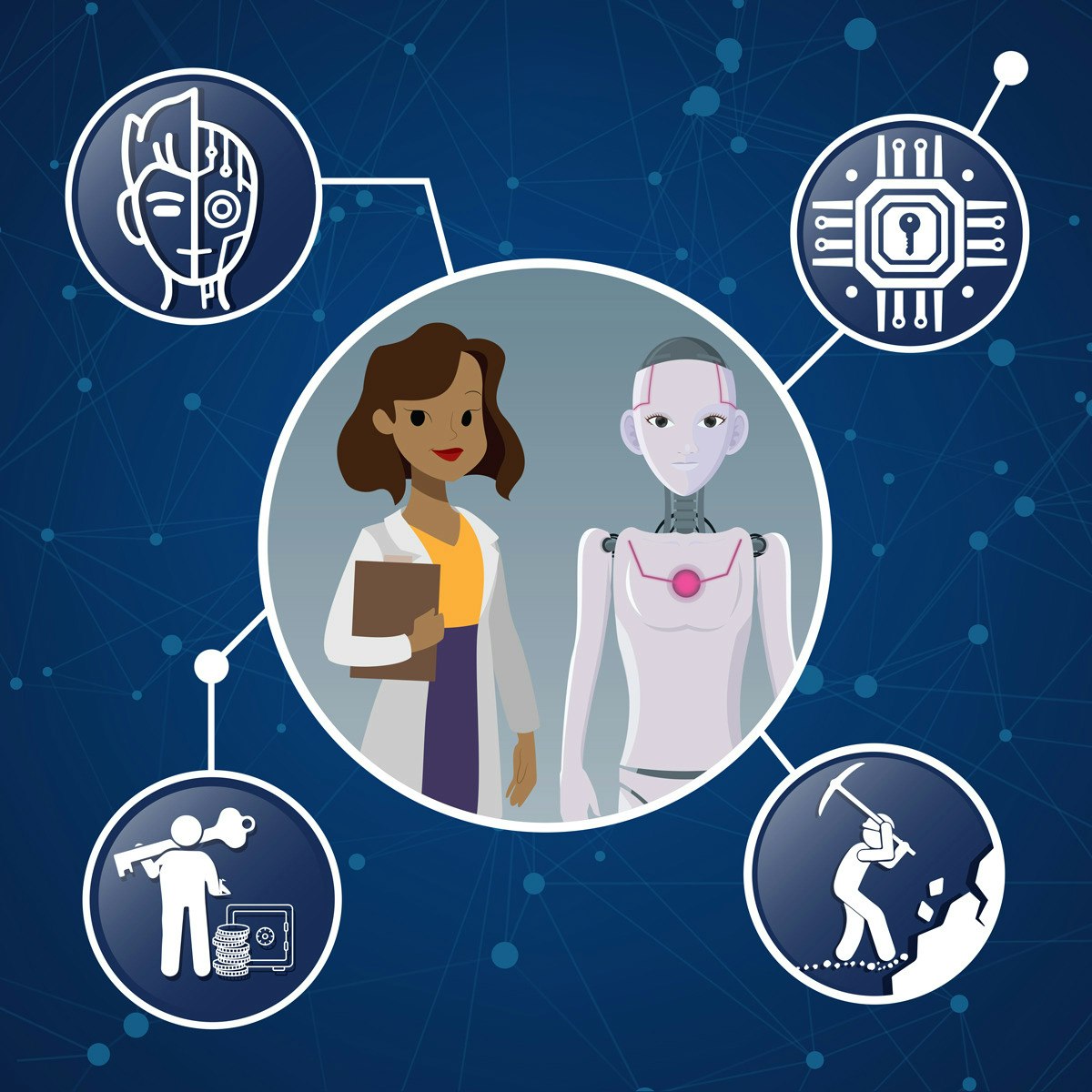Blockchain Technology
An Introduction to Blockchain Technology: Understanding its Potential and Career Paths
Blockchain technology has emerged as a significant innovation, fundamentally altering how we perceive and interact with digital information and assets. At its core, a blockchain is a decentralized and distributed digital ledger that records transactions across many computers in a way that makes the records secure, transparent, and resistant to alteration. Think of it as a shared, continuously updated list of records, called "blocks," which are linked together using cryptography, forming a "chain." This structure ensures that once a piece of information is added to the blockchain, it becomes extremely difficult to change, fostering trust and transparency among participants without the need for a central authority.
The excitement surrounding blockchain stems from its potential to revolutionize various sectors, well beyond its initial association with cryptocurrencies like Bitcoin. Its ability to create tamper-proof records and automate processes through "smart contracts" opens up possibilities for more efficient, secure, and transparent systems in finance, supply chain management, healthcare, and even governance. For individuals exploring new technological frontiers or considering a career pivot, the world of blockchain offers a dynamic and evolving landscape filled with opportunities to contribute to groundbreaking applications.
Understanding the Mechanics: How Blockchain Technology Works
To truly appreciate blockchain's potential, it's helpful to understand its underlying mechanics. The technology combines several key concepts to achieve its unique properties of decentralization, immutability, and transparency.
The Distributed Ledger: A Shared Source of Truth
At the heart of blockchain technology lies the concept of a distributed ledger. Unlike traditional databases that are typically centralized and controlled by a single entity, a blockchain ledger is replicated and shared across a network of computers, often referred to as nodes. Each participant in the network holds an identical copy of this ledger. When a new transaction or piece of data (a "block") is added, it's broadcast to all participants, and each updates their ledger accordingly. This distributed architecture means there's no single point of failure; if one node goes offline, the network continues to operate. It also makes the data highly resilient to tampering, as altering information would require an attacker to simultaneously change the majority of copies across the network, which is computationally very difficult.
Imagine a shared digital notebook that everyone in a group has a copy of. When someone wants to add a new entry, they announce it to the group. Everyone verifies the entry, and if it's valid, they all add it to their copy of the notebook at the exact same time. This way, everyone has the same information, and no single person can secretly change past entries without everyone else noticing. This shared, synchronized notebook is similar to how a distributed ledger in a blockchain works.
This characteristic is crucial for building trust in environments where participants may not fully trust each other. Because everyone has access to the same version of the truth, disputes can be more easily resolved, and the need for intermediaries to validate transactions is reduced or eliminated.
Consensus Mechanisms: Agreeing on Validity
For a new block of transactions to be added to the blockchain, network participants must agree on its validity. This agreement is achieved through consensus mechanisms. These are sets of rules and protocols that allow distributed systems to work together and stay secure. Two of the most well-known consensus mechanisms are Proof-of-Work (PoW) and Proof-of-Stake (PoS).
Proof-of-Work (PoW), famously used by Bitcoin, requires network participants (called miners) to solve complex mathematical problems to validate transactions and create new blocks. This process is computationally intensive and requires significant energy. The first miner to solve the puzzle gets to add the next block to the chain and is usually rewarded with cryptocurrency. This "work" proves that the miner has expended effort, making it costly for anyone to try and cheat the system.
Proof-of-Stake (PoS), on the other hand, allows users to validate transactions and create new blocks based on the number of coins they hold and are willing to "stake" as collateral. Instead of relying on computational power, PoS selects validators based on their economic stake in the network. This method is generally considered more energy-efficient than PoW. Ethereum, a major blockchain platform, has transitioned from PoW to PoS to improve scalability and reduce energy consumption.
Think of PoW like a race where runners have to solve a hard math problem to win. The first one to solve it gets a prize. It takes a lot of effort (energy). PoS is more like a lottery where the more tickets (coins) you have, the higher your chance of being chosen to verify transactions and get a reward. It's less about effort and more about how much you've invested.
Other consensus mechanisms exist, each with its own trade-offs in terms of security, speed, and energy efficiency, such as Delegated Proof-of-Stake (DPoS) and Proof-of-Luck (PoL). The choice of consensus mechanism significantly impacts the performance and characteristics of a blockchain network.
The Role of Cryptography: Ensuring Security and Integrity
Cryptography is fundamental to the security and integrity of blockchain technology. Two key cryptographic techniques employed are hashing and digital signatures.
Hashing involves taking an input (like transaction data) and producing a fixed-size string of characters, which is the "hash." Even a tiny change in the input data will result in a completely different hash. Each block in a blockchain contains the hash of the previous block, creating a secure link between them. If someone tries to tamper with the data in a previous block, its hash would change, and this change would cascade through all subsequent blocks, making the tampering immediately obvious to the rest of the network.
Digital signatures are used to verify the authenticity and integrity of transactions. They work similarly to handwritten signatures but in a digital context. When a user initiates a transaction, they sign it with their private key. This signature can then be verified by anyone using the sender's public key, confirming that the transaction indeed came from the sender and hasn't been altered. This provides a strong guarantee of who initiated a transaction and that it hasn't been tampered with during transmission.
Cryptography acts like a special seal and a unique signature for every transaction and block. Hashing is like creating a unique fingerprint for each block of information. If even one tiny detail in the block changes, the fingerprint changes completely. Digital signatures are like your personal, unforgeable signature, proving that you authorized a transaction.
Smart Contracts: Automating Agreements
Smart contracts are self-executing contracts with the terms of the agreement directly written into code. They are stored on the blockchain and automatically execute when predetermined conditions are met, without the need for intermediaries. For example, a smart contract could automatically release payment to a seller once a buyer confirms receipt of goods, or it could manage the distribution of royalties to artists when their music is streamed.
Imagine a vending machine: you insert money (input), select a product (condition), and the machine automatically dispenses your item and change (output). A smart contract works similarly but for more complex agreements. Once deployed on a blockchain, these contracts are immutable and transparent, meaning their terms cannot be changed, and their execution is visible to all relevant parties. This can lead to increased efficiency, reduced costs, and greater trust in agreements. Ethereum is a prominent platform known for its robust smart contract capabilities.
The development and auditing of secure and reliable smart contracts are significant areas of focus for blockchain developers and researchers.
To begin exploring the foundational concepts that underpin these mechanisms, consider these introductory courses:
These books can also provide a solid understanding of blockchain fundamentals:
Public vs. Private Blockchains: Tailoring Access and Control
Not all blockchains are created equal; they can be broadly categorized into public and private (or permissioned) blockchains, each suiting different needs.
Public blockchains, like Bitcoin and Ethereum, are open to anyone. Anyone can join the network, participate in the consensus process, view the ledger, and submit transactions. They are highly decentralized and transparent but can sometimes face challenges with scalability and transaction speed due to the large number of participants.
Private blockchains, also known as permissioned blockchains, restrict access to a select group of participants. An organization or a consortium of organizations typically controls who can join the network, view data, and validate transactions. These blockchains are often used by businesses for internal processes or collaborations where privacy and control are paramount. While they might be less decentralized than public blockchains, they can offer higher transaction speeds and greater scalability due to the limited number of trusted participants. There are also hybrid models, known as consortium blockchains, which are managed by a group of organizations rather than a single entity.
The choice between a public, private, or consortium blockchain depends on the specific use case, the level of trust required among participants, and the desired trade-offs between transparency, security, and efficiency.
Real-World Impact: Applications of Blockchain Technology
Blockchain's unique features have paved the way for a wide array of applications across numerous industries, demonstrating its potential to reshape traditional processes and create new business models.
Cryptocurrencies and Decentralized Finance (DeFi)
Perhaps the most well-known application of blockchain is in the realm of cryptocurrencies. Bitcoin, the first decentralized cryptocurrency, utilized blockchain to create a peer-to-peer electronic cash system without the need for banks or traditional financial institutions. Since then, thousands of other cryptocurrencies have emerged, each with its own blockchain and specific use cases.
Beyond simple digital currencies, blockchain has fueled the rise of Decentralized Finance (DeFi). DeFi aims to recreate traditional financial services—such as lending, borrowing, trading, insurance, and asset management—using decentralized protocols built on blockchains, primarily Ethereum. DeFi applications use smart contracts to automate these financial processes, offering users more control over their assets, potentially lower fees, and greater accessibility compared to conventional financial systems. This area is experiencing rapid innovation and attracting significant investment and talent.
For those interested in the financial applications of blockchain, these courses offer valuable insights:
The following books delve deeper into the intersection of blockchain and finance:
You may also wish to explore this related topic:
Supply Chain Management: Enhancing Transparency and Traceability
Blockchain technology offers significant benefits for supply chain management by providing a transparent and immutable record of goods as they move from origin to consumer. Each step in the supply chain – from sourcing raw materials to manufacturing, shipping, and retail – can be recorded as a transaction on a blockchain. This allows all stakeholders, including suppliers, manufacturers, distributors, retailers, and even consumers, to track the journey of a product in real-time.
This enhanced traceability can help verify the authenticity of products, prevent counterfeiting, ensure compliance with ethical sourcing standards, and improve food safety by enabling rapid identification of contamination sources. By creating a shared, trusted source of information, blockchain can reduce inefficiencies, minimize disputes, and build greater trust among supply chain partners.
These courses explore blockchain's role in supply chains and business more broadly:
This book provides further context:
Healthcare: Securing Patient Data and Streamlining Processes
In the healthcare sector, blockchain can be used to enhance the security and interoperability of patient data. By storing medical records on a blockchain, patients could have more control over their health information, granting access to doctors and specialists as needed while maintaining a secure and auditable trail of who has accessed their data. This can improve data privacy and reduce the risk of unauthorized access or breaches.
Blockchain can also streamline processes such as medical billing, insurance claims processing, and pharmaceutical supply chain management to combat counterfeit drugs. Clinical trials could also benefit from the transparency and immutability of blockchain for recording trial data and managing patient consent.
Voting Systems and Governance: Improving Integrity and Participation
Blockchain technology has been proposed as a way to create more secure, transparent, and auditable voting systems. By recording votes as transactions on a blockchain, it could be possible to ensure that each vote is counted accurately and that the election results are tamper-proof. This could enhance the integrity of elections and increase public trust in democratic processes.
Beyond voting, blockchain can support new models of decentralized governance. Decentralized Autonomous Organizations (DAOs) are entities that operate according to rules encoded as smart contracts on a blockchain. [qk0as1] DAOs allow for collective decision-making and resource management by a community of token holders, potentially transforming how organizations are structured and governed in various fields.
This course offers an introduction to DAOs:
NFTs and Digital Ownership: Revolutionizing Digital Assets
Non-Fungible Tokens (NFTs) are unique digital assets that represent ownership of a specific item, whether it's digital art, collectibles, virtual land, or even real-world assets. NFTs are recorded on a blockchain, providing a verifiable and transparent record of ownership. This has created new markets for digital creators and collectors, allowing artists to monetize their work directly and providing buyers with provable ownership of unique digital items.
The concept of digital scarcity and verifiable ownership enabled by NFTs extends beyond art and collectibles. It has implications for intellectual property rights, licensing, gaming (in-game assets), and ticketing, opening up new ways to define and transfer value in the digital realm.
This course can help you understand NFTs better:
Learning the Ropes: Formal Education Pathways in Blockchain
For those aspiring to delve deep into blockchain technology, whether for research, advanced development, or academic pursuits, formal education pathways offer structured learning and recognized credentials. Universities and academic institutions are increasingly recognizing the importance of blockchain and are incorporating it into their curricula.
Relevant Undergraduate and Graduate Degrees
A strong foundation in computer science is often a prerequisite for specializing in blockchain technology. Undergraduate degrees in Computer Science, Software Engineering, or Information Technology provide essential knowledge in programming, data structures, algorithms, networking, and cryptography – all of which are crucial for understanding and working with blockchain.
At the graduate level, students can pursue Master's or Ph.D. programs with specializations or research focuses in areas directly related to blockchain, such as:
- Distributed Systems: This field deals with the design and implementation of systems whose components are located on different networked computers, which communicate and coordinate their actions by passing messages to one another. Blockchain is a prime example of a distributed system.
- Cryptography: Advanced study in cryptography provides the theoretical underpinnings for blockchain security, covering topics like hash functions, digital signatures, encryption algorithms, and zero-knowledge proofs.
- Cybersecurity: With the increasing value transacted on blockchains, security is paramount. A focus on cybersecurity can equip individuals with the skills to identify and mitigate vulnerabilities in blockchain protocols and applications.
- Financial Technology (FinTech): Many business schools and computer science departments now offer FinTech programs that often include significant coursework on blockchain, cryptocurrencies, and their impact on financial services. [uyw09j]
Some universities are even beginning to offer dedicated degrees or certificates in Blockchain Technology itself, covering its technical, business, and legal aspects.
Research Opportunities in Distributed Systems and Cryptography
For those inclined towards academia and cutting-edge research, blockchain technology presents a fertile ground for exploration. Research opportunities abound in areas such as:
- Developing more scalable and efficient consensus mechanisms.
- Enhancing the privacy and security of blockchain transactions (e.g., through advanced cryptographic techniques like zero-knowledge proofs).
- Designing novel blockchain architectures for specific applications.
- Exploring the economic and social implications of decentralized systems.
- Investigating the formal verification of smart contracts to prevent bugs and vulnerabilities.
Ph.D. programs in computer science or related fields often provide the resources and mentorship for such in-depth research. Collaborations between academia and industry are also common, offering researchers the chance to work on real-world problems.
Certifications and Specialized Workshops
Beyond traditional degrees, numerous certifications and specialized workshops are available for individuals looking to gain specific blockchain skills or demonstrate their expertise to potential employers. These can range from foundational certifications covering blockchain basics to more advanced certifications focusing on specific platforms (like Ethereum or Hyperledger) or roles (like Blockchain Developer or Blockchain Architect).
Workshops, often offered by universities, training companies, or industry consortia, can provide intensive, hands-on learning experiences in specific areas of blockchain technology. While the value of certifications can vary, those from reputable organizations can be a useful addition to a resume, especially when combined with practical project experience. Many online platforms also offer blockchain certifications, which can be a flexible way to gain credentials. You can explore a variety of blockchain courses and specializations on OpenCourser to find programs that align with your learning goals.
These courses offer a pathway to more specialized knowledge:
Navigating Your Own Path: Online and Self-Directed Learning in Blockchain
The world of blockchain technology is not exclusively accessible through traditional academic routes. The rapid evolution of the field, coupled with a wealth of online resources, makes self-directed learning a viable and increasingly popular path for career pivoters, curious learners, and professionals looking to upskill. The key is dedication, a structured approach, and a passion for continuous learning.
Is a Self-Taught Blockchain Career Realistic?
Absolutely. Many successful blockchain professionals are self-taught or have significantly supplemented their formal education with online learning. The demand for blockchain skills often outpaces the supply of traditionally qualified individuals, opening doors for those who can demonstrate practical knowledge and ability, regardless of their academic background. However, this path requires discipline and a proactive approach to learning. It's not just about watching videos; it's about actively engaging with the material, building projects, and joining communities.
The journey might be challenging, especially if you're new to programming or complex technical concepts. But with perseverance, the rewards can be substantial, both intellectually and professionally. Remember, many pioneers in emerging tech fields forged their own paths.
OpenCourser is an excellent resource for finding online courses from various providers. You can search for foundational blockchain courses or explore more specialized topics as you advance. The platform's features, such as summarized reviews and syllabi, can help you choose the best courses for your learning style and goals.
Recommended Learning Paths: Building from the Ground Up
A structured learning path can make the self-teaching journey more effective. While paths can vary based on your end goals (e.g., developer, analyst, consultant), some common foundational areas include:
- Core Computer Science Concepts: If you're new to tech, start with the basics of computer science, including data structures, algorithms, and networking fundamentals. Many free and paid online courses cover these topics extensively.
-
Programming Languages: Proficiency in at least one programming language is crucial.
- JavaScript: Widely used in web development, including for building front-ends for decentralized applications (dApps).
- Python: Known for its readability and extensive libraries, Python is also used in blockchain development and data analysis.
- Solidity: This is the primary language for writing smart contracts on Ethereum and other compatible blockchains.
- Rust: Gaining popularity for its performance and safety features, Rust is used in developing blockchains like Solana and Polkadot.
- Go (Golang): Used in projects like Hyperledger Fabric and Go-Ethereum.
- Blockchain Fundamentals: Understand what blockchain is, how it works, its key components (blocks, chains, hashing, digital signatures), different types of blockchains, and consensus mechanisms.
- Cryptography Basics: Learn about the cryptographic principles that secure blockchains, such as public-key cryptography, hash functions, and digital signatures.
- Smart Contract Development: If you aim to be a blockchain developer, learning to write, test, and deploy smart contracts is essential. This usually involves learning Solidity for Ethereum or similar languages for other platforms.
- Decentralized Application (dApp) Architecture: Understand how dApps are built, including front-end interaction with smart contracts (e.g., using libraries like Web3.js or Ethers.js) and back-end considerations.
- Specific Blockchain Platforms: Deep dive into the specifics of major blockchain platforms like Ethereum, Bitcoin, Solana, Polkadot, or Hyperledger, depending on your interests and career goals.
Many online courses offer comprehensive specializations that cover several of these areas in a logical sequence.
These courses provide excellent starting points for practical blockchain development:
For those looking to build their foundational knowledge, these books are highly recommended:
The Power of Project-Based Learning
Theoretical knowledge is important, but practical application is what truly solidifies understanding and builds a compelling portfolio. Engaging in project-based learning is one of the most effective ways to learn blockchain technology.
Start with small projects, such as:
- Building a simple blockchain in a language like Python or JavaScript.
- Writing and deploying basic smart contracts (e.g., a simple voting system, a token).
- Creating a front-end interface to interact with your smart contracts.
- Contributing to open-source blockchain projects.
As your skills grow, you can tackle more complex projects, like building a small DeFi application, an NFT marketplace, or a supply chain tracking prototype. Document your projects on platforms like GitHub; this will serve as tangible proof of your abilities to potential employers or collaborators.
Online courses often include hands-on projects, which can be a great way to get started. Don't be afraid to experiment and build things that interest you, even if they are not perfect. The process of building, debugging, and iterating is an invaluable learning experience.
Online Certifications: Do They Matter?
Online certifications in blockchain can add value to your profile, especially if they are from reputable institutions or platforms and are backed by rigorous coursework and assessments. They can demonstrate a commitment to learning and a foundational understanding of the subject matter.
However, certifications alone are usually not enough. Employers in the blockchain space highly value practical skills and real-world experience. Therefore, a certification is most impactful when combined with a strong portfolio of projects, contributions to open-source initiatives, or relevant work experience. When choosing a certification program, look for those that offer hands-on labs, project work, and are well-regarded in the industry. OpenCourser's Learner's Guide offers articles on how to evaluate online courses and the potential benefits of certifications.
Consider these specialized online courses which often come with completion certificates:
Climbing the Ladder: Career Progression in Blockchain Technology
The blockchain industry, while relatively young, offers a diverse and rapidly expanding range of career opportunities. As the technology matures and adoption grows across various sectors, the demand for skilled professionals continues to rise. Understanding the potential career pathways can help you navigate this exciting field, whether you're just starting or looking to specialize further.
The job market for blockchain professionals is robust, with salaries often being very competitive due to the specialized skills required. According to various sources, average salaries for blockchain developers in the US can range significantly, often from $120,000 to $180,000 or even higher depending on experience, location, and specific skills. Entry-level positions can also command attractive salaries.
Entry-Level Roles: Getting Your Foot in the Door
For those new to the blockchain space, several entry-level roles can provide a solid foundation and pathway for growth. These roles often require a good understanding of blockchain fundamentals, some programming knowledge (for developer roles), and strong analytical skills.
- Junior Blockchain Developer: Works under the guidance of senior developers on coding, testing, and deploying blockchain solutions and smart contracts. This is a common entry point for those with programming skills.
- Blockchain Quality Assurance (QA) Engineer: Focuses on testing blockchain applications and smart contracts to ensure they are secure, reliable, and function as intended.
- Blockchain Analyst/Researcher: Involves researching blockchain technologies, market trends, specific cryptocurrency projects, or the application of blockchain in various industries. This role might involve data analysis and report writing.
- Technical Support Specialist (Blockchain): Provides support to users of blockchain platforms or applications, troubleshooting issues and explaining technical concepts.
- Community Manager (for Blockchain Projects): Engages with the project's community, manages social media channels, and helps to build a strong user base, particularly for cryptocurrency or DAO projects.
Gaining practical experience through internships, personal projects, or contributions to open-source blockchain initiatives can significantly enhance your prospects for these entry-level positions.
These introductory courses can help build the foundational knowledge needed for entry-level positions:
Mid-Career Specialization: Deepening Your Expertise
As you gain experience in the blockchain field, opportunities for specialization emerge. Mid-career roles often require a deeper understanding of specific blockchain platforms, advanced development skills, or domain expertise in a particular application area.
- Blockchain Developer/Engineer: Designs, develops, and maintains blockchain protocols, smart contracts, and decentralized applications (dApps). This is a core technical role with high demand.
- Smart Contract Engineer/Developer: Specializes in writing, testing, auditing, and deploying secure and efficient smart contracts, often using languages like Solidity.
- DeFi Architect/Developer: Focuses on designing and building decentralized finance applications, requiring a strong understanding of financial concepts and blockchain security.
- Blockchain Security Specialist/Auditor: Specializes in identifying and mitigating security vulnerabilities in blockchain systems and smart contracts. This involves penetration testing, code reviews, and security audits.
- Blockchain Solutions Architect: Designs comprehensive blockchain solutions for businesses, considering factors like scalability, security, integration with existing systems, and business requirements.
- Cryptocurrency Analyst/Trader: Analyzes cryptocurrency markets, evaluates investment opportunities, and may manage crypto portfolios.
Salaries at the mid-career level can be quite substantial, reflecting the specialized skills and experience required.
For those looking to specialize, particularly in development or security, these courses are relevant:
These books can provide deeper technical knowledge:
Leadership and Advanced Roles: Shaping the Future
With significant experience and a proven track record, professionals can advance to leadership and highly specialized roles that shape the direction of blockchain projects and the industry itself.
- Lead Blockchain Developer/Architect: Leads development teams, defines technical strategy, and makes high-level design choices for complex blockchain systems.
- Chief Technology Officer (CTO) (Blockchain-focused company): Oversees all technical aspects of a company operating in the blockchain space, driving innovation and technical vision.
- Blockchain Project Manager: Manages blockchain projects from inception to completion, coordinating teams, resources, and timelines. Requires strong organizational and communication skills, along with a good understanding of blockchain technology.
- Blockchain Consultant: Advises businesses and organizations on how to leverage blockchain technology, develop blockchain strategies, and implement solutions. This role often requires a blend of technical knowledge, business acumen, and industry expertise.
- Blockchain Researcher (Senior/Principal): Leads research initiatives in academia or industry, pushing the boundaries of blockchain technology and its applications.
- Head of Product (Blockchain): Defines and manages the product roadmap for blockchain-based products or platforms, understanding market needs and translating them into product features.
These roles demand not only deep technical expertise but also strong leadership, strategic thinking, and communication skills. Compensation at this level is typically very high.
Freelancing and Consulting: Charting Your Own Course
The blockchain industry also offers ample opportunities for freelancing and consulting. Many companies, especially startups and SMEs, seek specialized blockchain expertise on a project basis. Freelance blockchain developers, smart contract auditors, and consultants can find work through various online platforms and professional networks.
This path offers flexibility and the opportunity to work on diverse projects. However, it also requires strong self-management, business development skills, and the ability to stay constantly updated with the latest technological advancements. Hourly rates for experienced blockchain freelancers can be quite lucrative.
To understand the business and strategic side of blockchain, which is useful for consulting, consider this course:
And this book offers a business perspective:
Navigating the Hurdles: Challenges and Limitations of Blockchain Technology
While blockchain technology holds immense promise, it's not without its challenges and limitations. Acknowledging these hurdles is crucial for realistic assessment and for driving further innovation to overcome them. Aspiring professionals and organizations venturing into this space should be aware of these complexities.
Scalability and Energy Consumption: The Performance Bottleneck
One of the most significant challenges facing many public blockchains, particularly those using Proof-of-Work (PoW) consensus mechanisms like Bitcoin, is scalability. Scalability refers to a blockchain's ability to handle a large volume of transactions quickly and efficiently. PoW blockchains can often process only a limited number of transactions per second, leading to network congestion and higher transaction fees during peak usage. This can hinder their adoption for mainstream applications requiring high throughput, such as global payment systems or large-scale enterprise solutions.
Furthermore, the PoW consensus mechanism is notoriously energy-intensive. The massive computational power required for mining consumes vast amounts of electricity, raising environmental concerns about the carbon footprint of these blockchains. While newer consensus mechanisms like Proof-of-Stake (PoS) are significantly more energy-efficient, the energy consumption of established PoW networks remains a contentious issue and a barrier to broader acceptance for some.
Researchers and developers are actively working on solutions to address these issues, including Layer-2 scaling solutions (discussed in Future Trends) and the transition of major blockchains like Ethereum to PoS.
Regulatory Uncertainty: Navigating a Complex Legal Landscape
The regulatory landscape for blockchain technology and cryptocurrencies is still evolving and varies significantly across different jurisdictions. Governments and regulatory bodies worldwide are grappling with how to classify digital assets, oversee cryptocurrency exchanges, address consumer protection issues, and manage potential risks related to money laundering and illicit financing.
This regulatory uncertainty can create challenges for businesses and innovators in the blockchain space. It can be difficult to launch new products or services without clarity on legal obligations and compliance requirements. The lack of harmonized international regulations also poses challenges for cross-border blockchain applications. As the technology matures, clearer regulatory frameworks are expected to emerge, but navigating the current environment requires careful legal counsel and a proactive approach to compliance.
This course touches upon some legal and policy aspects:
Security Vulnerabilities: Not All Chains Are Unbreakable
While blockchain technology is designed to be secure, it is not immune to vulnerabilities. The security of a blockchain depends on its underlying code, its consensus mechanism, and the security practices of its participants. Potential vulnerabilities include:
- 51% Attacks: In PoW blockchains, if a single entity or a coordinated group gains control of more than 50% of the network's mining power, they could potentially disrupt the network, reverse transactions, or prevent new transactions from being confirmed. This is more of a threat to smaller blockchains with less hashing power.
- Smart Contract Bugs: Flaws or vulnerabilities in the code of smart contracts can be exploited by malicious actors, leading to the theft of funds or other unintended consequences. Auditing smart contract code is crucial but can be complex and time-consuming.
- Exchange Hacks: Centralized cryptocurrency exchanges, where many users store their digital assets, have been targets for hackers, resulting in significant losses. While this is not a flaw in the blockchain itself, it highlights the security risks associated with interacting with blockchain-based assets.
- Social Engineering and Phishing: Users can be tricked into revealing their private keys or sending funds to malicious addresses, regardless of the underlying blockchain's security.
Ongoing research and development in blockchain security, including formal verification methods for smart contracts and more robust consensus algorithms, aim to address these vulnerabilities. Users also play a critical role by adopting best practices for securing their private keys and being vigilant against scams.
Understanding security is paramount. This course provides a focused look at this area:
Interoperability Challenges: Enabling Blockchains to Communicate
The blockchain ecosystem currently consists of many different blockchain networks, each often operating in isolation. This lack of interoperability – the ability for different blockchains to communicate and exchange data or assets seamlessly – can limit the potential of the technology. For example, assets created on one blockchain cannot easily be used on another without complex and often centralized bridging solutions.
Achieving true interoperability would allow for the creation of more interconnected and powerful decentralized applications, enabling assets and information to flow freely across different blockchain networks. Various projects and initiatives are working on developing interoperability protocols and standards, but this remains an ongoing challenge and an active area of research and development.
The Horizon Ahead: Future Trends in Blockchain Technology
Blockchain technology is far from static; it is a field characterized by rapid innovation and continuous evolution. Several exciting trends are shaping its future, promising to address current limitations and unlock new capabilities. Staying abreast of these trends is crucial for anyone involved in or considering a career in this dynamic space.
Layer-2 Solutions and Sharding: Scaling for Mass Adoption
To address the scalability challenges faced by many Layer-1 blockchains (like Bitcoin and Ethereum's mainnet), significant development is focused on Layer-2 scaling solutions and techniques like sharding.
Layer-2 solutions are protocols built on top of an existing blockchain (Layer 1) to improve its transaction speed and reduce costs. They work by processing transactions off the main chain and then periodically settling them back onto the Layer 1, thereby reducing the load on the main network. Examples include State Channels (like Bitcoin's Lightning Network), Sidechains, and Rollups (Optimistic Rollups and ZK-Rollups). These solutions aim to make blockchains more practical for everyday use and high-volume applications.
Sharding is a database partitioning technique that is being adapted for blockchains. It involves splitting a blockchain's network into smaller, more manageable pieces called "shards." Each shard can process its own transactions and smart contracts in parallel, significantly increasing the overall transaction throughput of the network. Ethereum's roadmap includes the implementation of sharding as part of its ongoing upgrades to enhance scalability.
These advancements are critical for enabling blockchains to support a growing number of users and applications without sacrificing decentralization or security.
Central Bank Digital Currencies (CBDCs): The Digital Future of Money
Central Bank Digital Currencies (CBDCs) are digital forms of a country's fiat currency issued and backed by its central bank. [ny9fro] Unlike cryptocurrencies like Bitcoin, CBDCs would be centralized and regulated by monetary authorities. Many central banks around the world are actively researching, piloting, or in some cases, even launching CBDCs.
The motivations for exploring CBDCs include improving payment efficiency, reducing the costs of managing physical cash, enhancing financial inclusion, and potentially providing a more resilient payment infrastructure. While not all CBDCs will necessarily use blockchain technology, many experimental designs are leveraging distributed ledger technology for its security and transparency features. The development and potential widespread adoption of CBDCs could have a profound impact on the global financial system and the broader digital payments landscape.
This course explores digital currencies, including CBDCs:
The Evolution of DAOs: Decentralized Governance Matures
Decentralized Autonomous Organizations (DAOs) are gaining traction as a new model for community-led governance and resource management. [qk0as1] DAOs operate based on rules encoded in smart contracts, with decisions typically made through voting by token holders. They are being used to manage DeFi protocols, investment funds, creator collectives, and various other community-driven initiatives.
The future of DAOs involves addressing challenges related to voter apathy, governance scalability, legal recognition, and security. Innovations in DAO tooling, governance frameworks, and legal structures are emerging to make DAOs more effective, resilient, and accessible. As DAOs mature, they could play an increasingly significant role in various sectors, offering more transparent, democratic, and participatory alternatives to traditional organizational structures.
For a deeper dive into the mechanics of DAOs, consider this course:
Convergence with AI and IoT: Creating Smarter, Autonomous Systems
The convergence of blockchain technology with other transformative technologies like Artificial Intelligence (AI) and the Internet of Things (IoT) holds significant promise. [jfh8iw, rg7pyp]
Blockchain and AI: Blockchain can provide secure and auditable data trails for AI algorithms, enhancing transparency and trust in AI-driven decisions. AI, in turn, can be used to analyze blockchain data for insights, optimize blockchain operations, or even manage smart contracts more intelligently. The combination could lead to more robust and trustworthy AI systems, particularly in areas like data sharing and model governance. [jfh8iw, rg7pyp]
Blockchain and IoT: The IoT involves a vast network of interconnected devices generating massive amounts of data. Blockchain can provide a secure and decentralized framework for managing IoT data, enabling secure device-to-device communication and transactions. This could be crucial for applications like smart cities, autonomous vehicles, and industrial IoT, where data integrity and secure device interaction are paramount.
The interplay between these technologies is expected to drive innovation in areas like decentralized data marketplaces, autonomous supply chains, and more intelligent and secure automated systems.
These courses touch upon the intersection of blockchain with AI and other emerging technologies:
Exploring these related topics can provide further context:
The Moral Compass: Ethical Considerations in Blockchain Technology
As with any powerful technology, the rise of blockchain brings forth a range of ethical considerations that society, developers, and policymakers must address. These discussions are vital to ensure that blockchain is developed and deployed responsibly, maximizing its benefits while mitigating potential harms.
The Privacy vs. Transparency Paradox
One of the core features of many public blockchains is transparency: all transactions are typically recorded on a public ledger and are viewable by anyone. While this transparency can foster trust and accountability, it also raises significant privacy concerns. If a user's real-world identity can be linked to their blockchain address, their entire transaction history could become public knowledge.
This creates a paradox: how can we leverage the benefits of transparency while protecting individual privacy? Solutions being explored include privacy-enhancing technologies like zero-knowledge proofs (which allow one party to prove to another that a statement is true, without revealing any information beyond the validity of the statement itself), anoymous DLTs, and the use of permissioned blockchains where data access is more restricted. Striking the right balance between transparency and privacy is a key ethical challenge in the ongoing development of blockchain technology.
Environmental Impact: Beyond Proof-of-Work
The high energy consumption associated with Proof-of-Work (PoW) consensus mechanisms has been a significant ethical concern, particularly given the urgent global need to address climate change. The carbon footprint of large PoW blockchains like Bitcoin has drawn considerable criticism.
The industry is responding to this challenge in several ways. The most notable is the shift towards more energy-efficient consensus mechanisms like Proof-of-Stake (PoS), which can reduce energy consumption by over 99% compared to PoW. Ethereum's successful transition to PoS is a major step in this direction. Additionally, there is growing interest in powering blockchain operations with renewable energy sources and developing "green" blockchain solutions. However, the environmental impact of existing PoW networks remains an ongoing debate and a critical ethical consideration for the industry's sustainability.
This course briefly touches on sustainability aspects:
Decentralization Ideals vs. Corporate Adoption
Blockchain technology was born out of a cypherpunk ethos that championed decentralization as a means to empower individuals and reduce reliance on powerful central authorities. However, as the technology has matured, there has been increasing interest and adoption by large corporations and traditional institutions.
This corporate adoption can bring significant resources, legitimacy, and mainstream acceptance to blockchain. However, it also raises questions about whether the original ideals of decentralization are being diluted. For instance, permissioned or private blockchains, often favored by enterprises, offer more control and efficiency but are inherently less decentralized than public blockchains. There's an ongoing tension between the purist vision of fully decentralized systems and the pragmatic realities of enterprise adoption, which often prioritizes control, compliance, and integration with existing systems. Navigating this tension and ensuring that the benefits of blockchain are widely distributed is an important ethical discussion.
This book explores the revolutionary aspects, including shifts in power dynamics:
Financial Inclusion and Accessibility: Bridging or Widening Gaps?
Blockchain technology, particularly through cryptocurrencies and DeFi, has the potential to promote financial inclusion by providing access to financial services for unbanked and underbanked populations around the world. It can lower barriers to entry, reduce transaction costs (especially for cross-border payments), and offer new ways to store and transfer value without relying on traditional banking infrastructure.
However, there are also concerns that blockchain could inadvertently widen existing inequalities. Access to blockchain-based services requires internet connectivity and a certain level of digital literacy, which are not universally available. The volatility of many cryptocurrencies can also pose risks for vulnerable populations. Furthermore, if the development and governance of blockchain ecosystems are dominated by a select few, the benefits may not be equitably distributed. Ensuring that blockchain technology genuinely empowers individuals and promotes broader financial inclusion, rather than creating new forms of exclusion, is a critical ethical imperative.
Frequently Asked Questions (Career Focus)
Embarking on a career in blockchain technology can be exciting, but it naturally comes with questions. Here are answers to some common queries from those looking to enter or advance in this field.
Do I need a computer science degree to work in blockchain?
While a computer science degree or a background in software engineering is highly beneficial, especially for core development roles, it's not always a strict prerequisite for all jobs in the blockchain space. Many successful blockchain professionals are self-taught or have transitioned from other fields. What often matters more is a strong understanding of blockchain principles, relevant technical skills (like programming in Solidity, Rust, or JavaScript for developers), and a portfolio of projects or contributions that demonstrate your abilities.
For non-technical roles, such as blockchain project manager, analyst, consultant, or roles in marketing or legal, industry knowledge and relevant experience in those functions are key, supplemented by a solid understanding of how blockchain technology works and its applications. Online courses and certifications can be very valuable for gaining foundational knowledge and specific skills, regardless of your formal degree. OpenCourser's blockchain category page is a great place to find courses that can help you build these skills.
How competitive is the blockchain job market?
The blockchain job market is generally considered competitive, but also one with high demand for skilled professionals. Because it's an emerging and rapidly evolving field, there's often a talent gap – meaning the demand for individuals with specialized blockchain skills can outstrip the supply. This can lead to attractive salary offers and numerous opportunities.
However, competition can be stiff for desirable roles, especially at well-known companies or for cutting-edge projects. To stand out, you'll need to demonstrate not just theoretical knowledge but also practical skills, a strong portfolio, and a commitment to continuous learning. Networking within the blockchain community, contributing to open-source projects, and staying updated on the latest trends can also give you an edge. The demand is particularly high for experienced blockchain developers, security auditors, and those with expertise in DeFi and smart contract development.
Which programming languages are most valuable?
Several programming languages are valuable in the blockchain space, and the best ones to learn depend on your specific career goals and the platforms you intend to work with:
- Solidity: Essential for developing smart contracts on Ethereum and other EVM-compatible blockchains. It's one of the most in-demand languages for blockchain developers.
- JavaScript: Widely used for front-end development of decentralized applications (dApps) and for interacting with blockchains via libraries like Web3.js and Ethers.js. Node.js is also used for back-end development in some blockchain projects.
- Python: Popular for its simplicity and versatility, Python is used for scripting, developing blockchain prototypes, data analysis on blockchain data, and in some blockchain frameworks.
- Rust: Gaining significant traction for its performance, memory safety, and concurrency features. It's used in building high-performance blockchains like Solana and Polkadot, as well as for writing smart contracts on these platforms.
- Go (Golang): Known for its efficiency and concurrency capabilities, Go is used in foundational projects like Hyperledger Fabric and the Go-Ethereum client.
- C++: Used in the core development of some major blockchains like Bitcoin due to its performance capabilities.
For aspiring smart contract developers, Solidity is often the primary language to focus on, especially for the Ethereum ecosystem. For broader blockchain development or if you're interested in specific newer platforms, Rust and Go are increasingly important.
Consider these courses to get started with key languages:
Are blockchain skills transferable to other tech fields?
Yes, many skills developed while working in blockchain are highly transferable to other areas of technology. For instance:
- Programming Languages: Proficiency in languages like Python, JavaScript, Go, and Rust is valuable across the entire software development industry.
- Cryptography: Knowledge of cryptographic principles is essential in cybersecurity, secure software development, and data privacy.
- Distributed Systems: Understanding distributed systems architecture is crucial for roles in cloud computing, big data, and backend engineering.
- Database Management: Experience with distributed ledgers can provide insights applicable to other database technologies.
- Software Development Best Practices: Skills in version control (like Git), testing, debugging, and agile methodologies are universally applicable in software engineering.
- Problem-Solving and Analytical Skills: The complex challenges in blockchain development hone analytical and problem-solving abilities that are prized in any technical field.
So, even if you decide to pivot away from blockchain later in your career, the foundational technical skills you acquire will remain valuable assets.
What industries hire blockchain professionals?
Blockchain professionals are in demand across a growing range of industries beyond just cryptocurrency firms. Some of the key sectors include:
- Financial Services and FinTech: This is a major area, with applications in payments, settlements, digital assets, DeFi, trade finance, and regulatory compliance.
- Technology Companies: Large tech firms and startups are actively developing blockchain platforms, tools, and applications.
- Supply Chain and Logistics: Companies are using blockchain for tracking goods, verifying authenticity, and improving transparency.
- Healthcare: Applications include secure management of patient data, pharmaceutical traceability, and clinical trial management.
- Gaming and Entertainment: NFTs, in-game assets, and decentralized gaming platforms are driving demand.
- Government and Public Sector: Exploring uses in voting systems, identity management, land registries, and public record keeping.
- Consulting Firms: Major consulting firms advise businesses on blockchain strategy and implementation.
- Real Estate: Tokenization of property and streamlined property transactions.
- Energy: Peer-to-peer energy trading and tracking renewable energy credits. [b4d2va]
As awareness and adoption of blockchain technology grow, more industries are expected to seek professionals with blockchain expertise. The World Economic Forum also highlights the cross-industry potential of blockchain and digital assets.
How volatile is blockchain as a long-term career?
Like any field based on emerging technology, the blockchain space has a degree of volatility. The cryptocurrency market, which is closely linked to public perception of blockchain, is known for its price fluctuations. Regulatory developments can also impact specific areas of the industry.
However, the underlying blockchain technology itself is proving to have durable value and a wide range of applications beyond speculative crypto trading. Many established enterprises are investing in blockchain, and the demand for core skills like blockchain development, smart contract engineering, and cybersecurity in this domain remains strong. According to U.S. Bureau of Labor Statistics projections for software developers (a related field), job growth is generally strong, and specialized skills like blockchain development are often in higher demand.
While some specific applications or cryptocurrencies might fade, the fundamental principles of distributed ledgers, cryptography, and smart contracts are likely to remain relevant. Focusing on building strong foundational skills that are transferable can help mitigate the risks associated with the volatility of specific projects or market segments. The long-term viability appears promising as the technology matures and integrates further into mainstream business processes. Reports from firms like Gartner often track the maturity and adoption of blockchain technologies, offering insights into future trends.
Concluding Thoughts
Blockchain technology stands as a transformative force with the potential to redefine trust, transparency, and efficiency across a multitude of sectors. From its origins powering cryptocurrencies to its current applications in finance, supply chain, healthcare, and beyond, blockchain continues to evolve, presenting both exciting opportunities and complex challenges. For individuals considering a journey into this field, whether through formal education, online learning, or a career transition, the path requires dedication, continuous learning, and a passion for innovation. While the landscape is dynamic and certain aspects may be volatile, the fundamental skills and understanding gained in blockchain are increasingly valuable in our digitally interconnected world. By embracing the learning process and actively engaging with the technology, you can position yourself to contribute to and thrive in this ever-expanding domain.



























